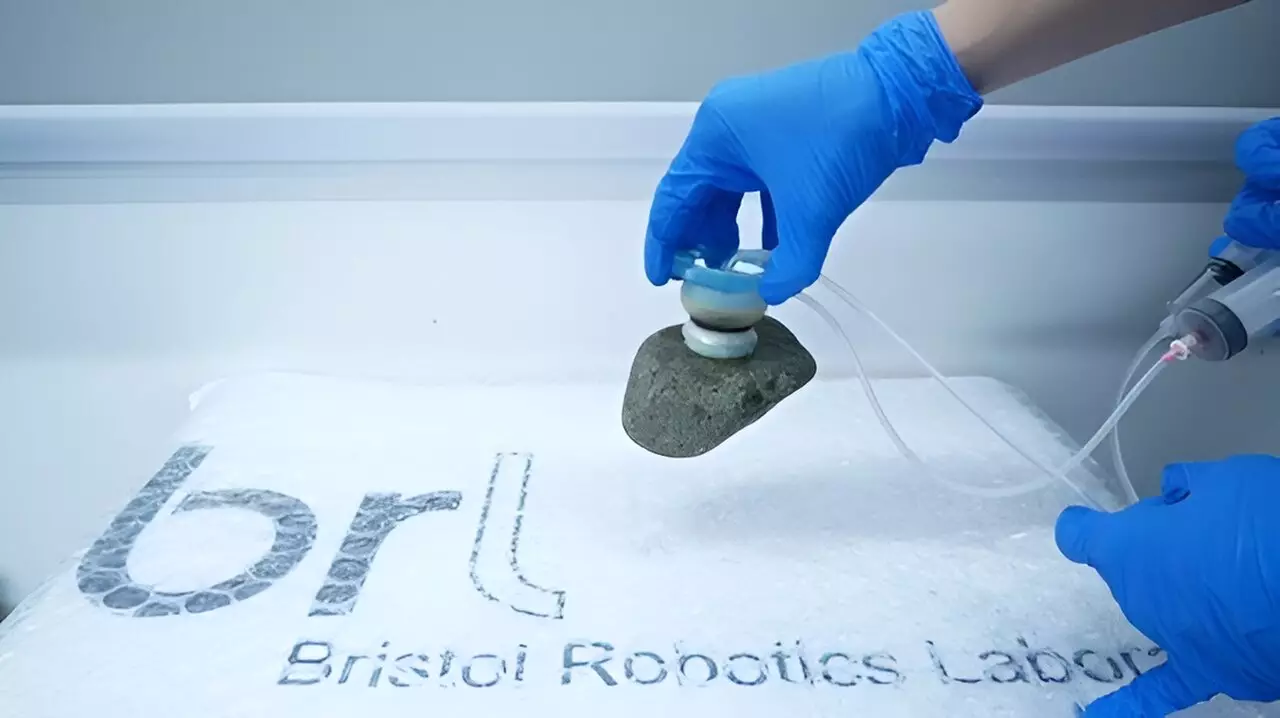Nature has always been a source of inspiration for scientific innovations, and the development of a new robotic suction cup is no exception. Scientists at the University of Bristol have drawn insights from the structures of octopus biological suckers to create a robotic suction cup that can grasp rough, curved, and heavy stones with remarkable adaptability.
The team at Bristol Robotics Laboratory focused on studying the intricate mechanisms of octopus suckers, known for their exceptional adaptive suction abilities that enable them to anchor themselves to various surfaces, including rocks. Through their research, detailed in the journal PNAS, the researchers were able to replicate the musculature and mucus structures of biological suckers, paving the way for the development of a multi-layer soft structure and an artificial fluidic system for the robotic suction cup.
Lead author Tianqi Yue emphasized the significance of the combination of mechanical conformation and liquid seal in achieving adaptive suction capabilities on complex surfaces. By utilizing soft materials to conform to surface shapes and regulating water secretion to seal microscopic apertures, the robotic suction cup demonstrates a multi-scale suction mechanism that ensures long-lasting adhesion on diverse surfaces while minimizing leakage.
The findings from this research hold great promise for industrial applications, particularly in the development of next-generation robotic grippers capable of grasping irregular objects effectively. By eliminating the need for noisy and energy-wasting air pumps commonly used in current industrial solutions, the new robotic suction cup presents a more efficient and versatile alternative inspired by nature’s soft-bodied organisms with superior suction abilities.
Looking ahead, the team plans to enhance the capabilities of the robotic suction cup by integrating sensors into its design to regulate its behavior. This intelligent suction cup aims to further optimize its performance and adaptability, showcasing the potential for continued advancements in soft adhesion technology inspired by nature’s ingenious mechanisms.
The development of a new robotic suction cup based on the adaptive suction abilities of octopus suckers highlights the innovative potential of bio-inspired engineering in creating advanced industrial solutions. By mimicking nature’s mechanisms and combining mechanical conformation with liquid seal techniques, the robotic suction cup offers a powerful and efficient alternative for a wide range of applications. With ongoing research and development, the future holds exciting possibilities for the integration of nature-inspired technologies into various industries, revolutionizing the way we approach adhesion and gripping challenges.


Leave a Reply